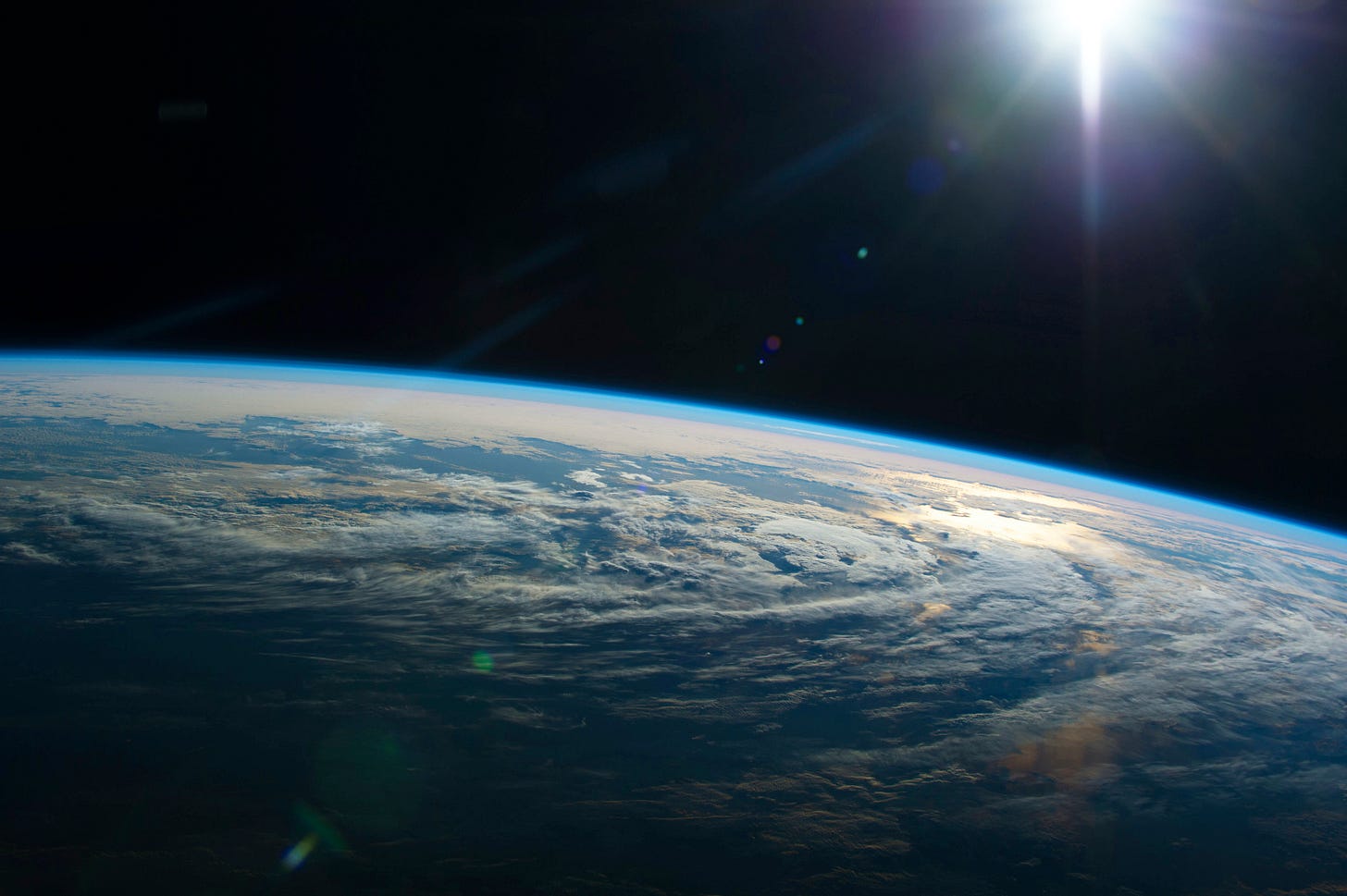From Climate to Biosphere: Animal Agriculture Breaches 5 of Earth’s 6 Critical Boundaries
How meat and dairy are fueling planetary collapse — and why shifting to a plant-based food system could change everything
Stabilizing the climate requires immediate, rapid and large-scale reductions in greenhouse gas emissions. The window for action is closing fast. And there are other planetary boundaries that, if crossed, would cause irreversible damage and disrupt the Earth’s systems, threatening to make our planet uninhabitable.
Despite these challenges, it’s too early to lose hope. In fact, we have all the knowledge and resources needed to thrive on this planet. It isn’t a question of possibility, but of using the possibility. That’s why today, I want to shine a light on one of the most destructive industries on the planet — one that significantly contributes to the breach of multiple planetary boundaries and one that each of us has the power to help curb.
The impact of animal agriculture on planetary boundaries
1) Climate change
Animal agriculture is a leading driver of climate change, responsible for the vast majority of global methane and nitrous oxide emissions — gases that are far more climate-damaging than CO₂. Studies show that meat and dairy consumption alone would push global temperatures past safe limits. Without a rapid shift away from animal products, the agriculture sector is expected to emit enough greenhouse gases to take up the entire 2 degrees Celsius emissions budget by itself.
“Even if fossil fuel emissions are halted immediately, current trends in global food systems may prevent the achieving of the Paris Agreement’s climate targets. (...) Only the vegan diet was in line with the 2 degrees threshold, while all other dietary patterns trespassed the threshold.”
— Ruett et al. (2022)“The livestock sector alone will likely exceed the planetary boundary of greenhouse gas emissions by 2030 and pose threats to other boundaries.”
— Li et al. (2023)“The magnitude and rapidity of these potential effects should place the reduction or elimination of animal agriculture at the forefront of strategies for averting disastrous climate change.”
— Eisen et al. (2022)“Methane emissions from cows alone will prevent us from limiting global warming to safe levels.”
— Kassam et al. (2024)
Importantly, climate targets can only be achieved by eliminating deforestation. Research has shown that a plant-based food system is the only option to reliably feed a growing world population with zero deforestation.
2) Biodiversity loss
The United Nations has identified the global food system as the leading driver of habitat destruction and biodiversity loss, with animal agriculture being the primary culprit. Experts estimate that shifting to a plant-based food system could prevent the extinction of 155,000 species by significantly reducing water use and pollution, as well as land use and deforestation. The current rate of extinction of species is estimated at 1,000 times higher than the natural, pre-human extinction rate and is increasing. Protecting biodiversity is crucial for human well-being and survival.
3) Biogeochemical flows
Fertilizers used to grow animal feed, along with waste from livestock, release excessive nitrogen and phosphorus into waterways. This runoff fuels harmful algae blooms, depleting oxygen levels in rivers, lakes, and oceans. The result is the spread of massive “dead zones” where aquatic life cannot survive. Livestock production systems are the largest cause of human alteration of global nitrogen and phosphorus cycles.
4) Freshwater change
Water scarcity is a growing problem on every continent. Four billion people are already affected, and an estimated 700 million people will be displaced by water scarcity by 2030. Animal agriculture requires vast quantities of freshwater to produce feed crops and for drinking water for animals. Producing animal protein requires up to 100 times more water than producing the same amount of protein from grains for direct human consumption. One single kilogram of beef, for instance, requires more than 15,000 liters (or 110 bathtubs) of water.
5) Land system change
Animal agriculture has been a driving force in the conversion of grasslands, wetlands, and forests to crop and grazing fields, resulting in vast deforestation globally. The industry is the world’s leading cause of soil degradation and the largest user of land by a wide margin, causing five times more deforestation than any other sector — with a range of catastrophic consequences for nature, wildlife, and humanity. Research shows that transitioning to a plant-based food system would cut humanity’s entire land use by over 70%, unlocking immense potential for restoring ecosystems, fighting climate change, and improving food security.

And that’s not all
Beyond the harms highlighted above, the livestock industry also causes air pollution that kills thousands per year in the U.S. alone, exacerbates world hunger, and drives antibiotic resistance — soon expected to claim more lives than all cancer. Furthermore, animal farming is the single most risky human behavior for pandemics, with experts warning that the next one could be 100 times worse than COVID. Meanwhile, overfishing remains the most serious threat to our oceans, pushing marine ecosystems to the brink, which we also rely on for survival. Urgent action is needed to address these escalating dangers.
Conclusion
Experts estimate that a global shift toward plant-based diets would halt the progress of climate change for 30 years, prevent the extinction of 155,000 species and drastically cut pollution, land and water use, and deforestation. Scientists say that avoiding meat and dairy is the ‘single biggest way’ to reduce our impact on Earth.
Choosing plant-based diets is not only a powerful way to combat all the harmful impacts outlined above and to break away from a system that exploits and kills billions of sentient beings every day — it also saves us money, eases the burden on public finances, and benefits our health. Failing to seize this incredible opportunity would be an enormous, and likely fatal, mistake.
Vegan Horizon is a reader-supported publication. To receive new posts and support my work, consider becoming a free or paid subscriber. 👇





Vegan is the only way forward ❤️